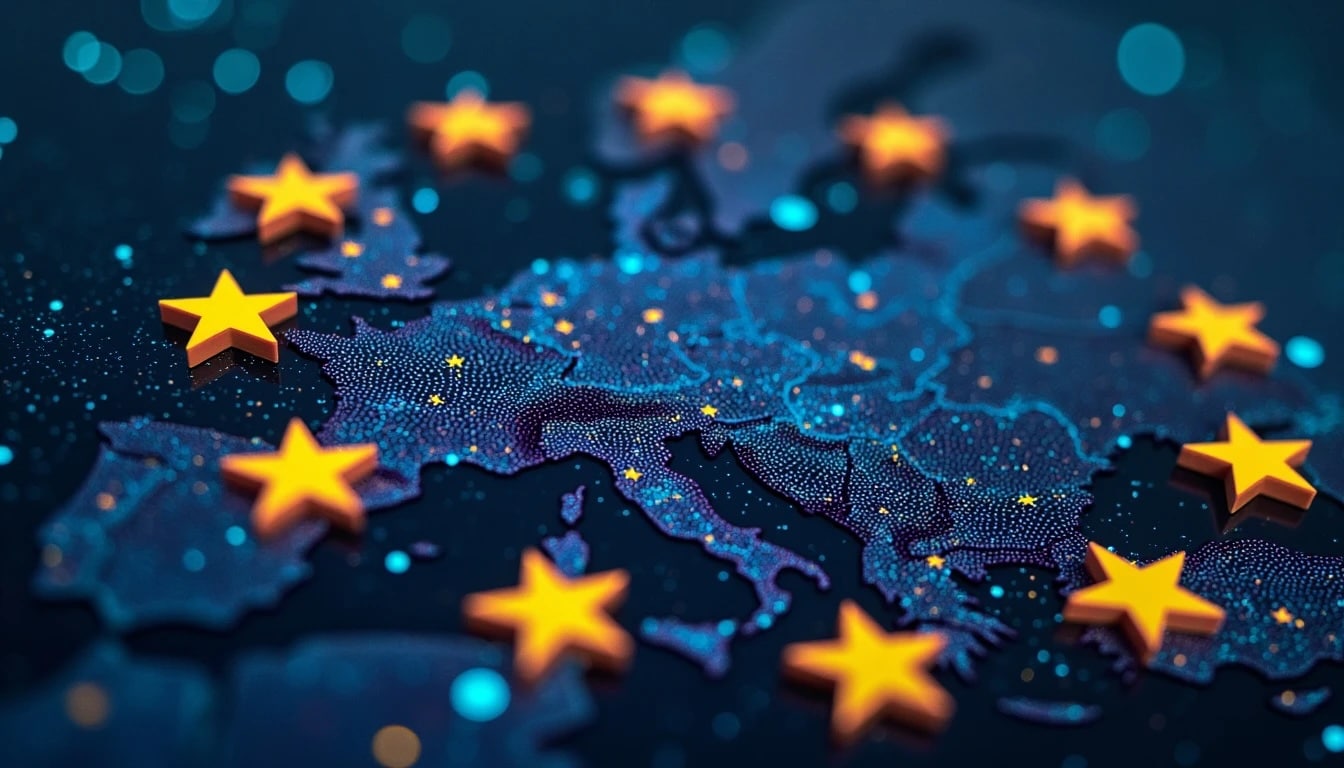The rise of European services like Ecosia and ProtonMail reflects a growing concern in the EU about U.S. technological hegemony.
Europe’s aspiration for true digital sovereignty faces a harsh reality: the world’s leading tech companies remain predominantly American and largely openly support former President and current leader Donald Trump. This situation has reignited a profound debate across the European continent regarding digital dependency in the context of geopolitical tensions, privacy challenges, and fears of unprecedented power concentration.
For years, platforms like Google, Facebook, Amazon, X (formerly Twitter), Netflix, and Instagram have fully integrated into the daily lives of Europeans. Abandoning them today seems complicated, even for the most aware citizens. However, initiatives like the Berlin-based charity Topio are gaining significance by helping users erase tracks of major U.S. tech companies from their mobile devices.
Michael Wirths, founder of Topio, summarizes the general sentiment: “Before, people concerned about privacy came to us. Now, citizens worried about the global political direction and the growing dominance of tech companies over our lives are seeking assistance.”
### The Support of Silicon Valley for Trump and Its Impact on Europe
Since Donald Trump returned to power, several tech companies have shown their closeness to his administration. Elon Musk, CEO of Tesla and owner of X, was one of his main advisors in the early days of the administration. Meanwhile, executives from Meta, Alphabet (Google), Amazon, and other companies held prominent positions at his inauguration ceremony.
The contrast with President Joe Biden’s administration is notable. In his final days in the White House, Biden warned about the emergence of an “oligarchic tech industrial complex” that, in his view, threatened democratic principles.
Meanwhile, in Europe, concern grows. The Trump administration has taken actions that Europe perceives as hostile: trade tariffs, accusations of censorship against European governments for regulating digital platforms, and even threats of visa restrictions for officials whom the U.S. believes restrict the free speech of American citizens on social media.
### The Rebirth of European Digital Alternatives
Despite the challenges, some European initiatives are making progress. Ecosia, the eco-friendly search engine founded in Berlin, has seen traffic from EU countries increase by 27% year-on-year, reaching 122 million visits in February. Although this figure pales in comparison to Google’s 10.3 billion visits in the same month, Ecosia boasts a sustainable business model: in April, it allocated €770,000 of its revenue to plant 1.1 million trees.
ProtonMail, the Swiss-based encrypted email service, has also recorded an 11.7% growth in European users over the past year. Additionally, the messaging app Signal, managed by a U.S. nonprofit foundation, experienced a 7% increase in installations in Europe during March.
Meanwhile, decentralized platforms like Mastodon, created by German programmer Eugen Rochko, have gained notoriety since Musk acquired Twitter. However, their reach remains limited compared to American giants.
### The Structural Challenge of Technological Independence
Despite the growth of alternatives, analysts and experts warn that a complete disconnection from U.S. digital infrastructures is, at least for now, practically unfeasible. “From push notifications to content distribution networks and web traffic routing, everything is deeply interconnected with U.S. infrastructure and companies,” explains Bill Budington, a member of the Electronic Frontier Foundation.
Even Ecosia and the French search engine Qwant partially depend on results provided by Google and Bing, and use cloud services that are still hosted on platforms managed by the same giants they criticize.
In Germany, some regional administrations, such as that of Schleswig-Holstein, have opted to replace proprietary software with open source solutions across public administration. At the national level, the new government is committed to promoting cloud infrastructures located in Europe and adopting open standards as part of its digital roadmap.
Additionally, Berlin has funded Ukraine’s access to the French satellite network Eutelsat, instead of Elon Musk’s Starlink system, as a symbolic and political gesture of technological independence.
### A Path Toward Sovereignty or a Lost Battle?
For many experts, the solution will not come solely from citizen will but through firm regulations. “The market is too captured. Regulation is also needed,” states digital activist Robin Berjon. In this respect, the European Union has initiated laws like the Digital Services Act (DSA), which requires platforms to act against illegal content, including hate speech and child abuse.
However, tech companies have responded sharply: Meta and others have accused Brussels of censorship. Meanwhile, U.S. officials, such as Secretary of State Marco Rubio, have issued warnings against European regulations that they believe infringe upon free speech.
The gap between the two digital powers—one seeking independence, the other consolidating its dominance—appears to be widening. In the middle, millions of Europeans are reflecting, increasingly, on the cost of digital convenience and the need to regain control over their data and technological tools. Digital sovereignty, although still distant, is no longer an abstract concept but a matter of principles.

